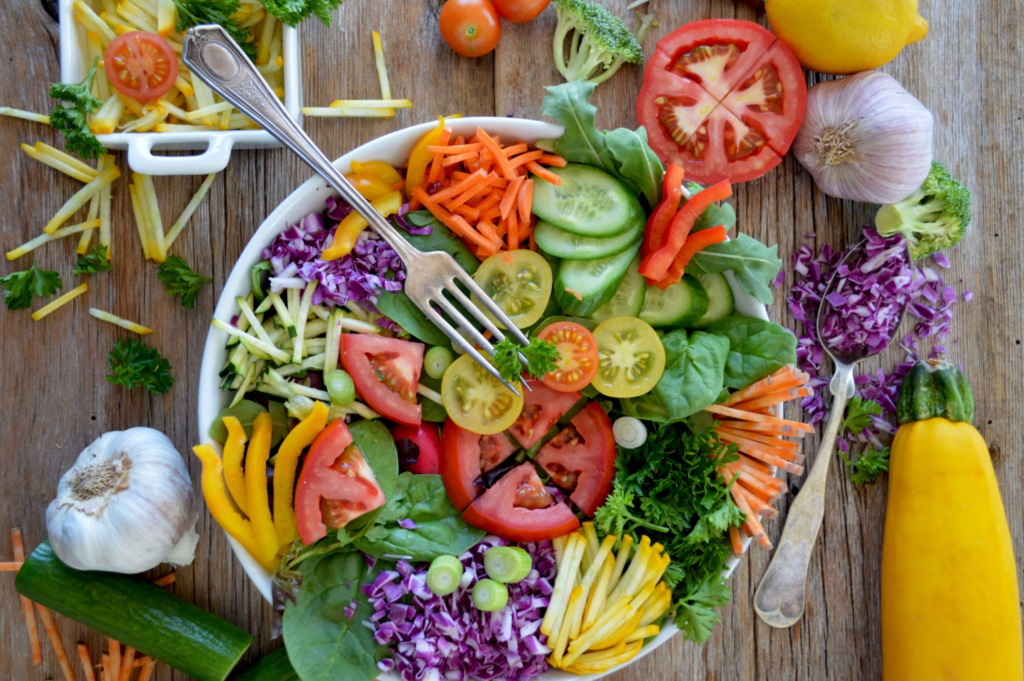
Food is a huge part of everyday life, so adding green-living practices to mealtime can make a big impact on yourself and the environment.
Mindful eating means knowing where your food comes from. Choose local, in-season produce. Buying from your local farmers’ market cuts down on food transportation costs and supports small farms.
Grow your own food. It’s fun, and nothing tastes better than herbs and produce you planted and nurtured yourself.
Use vegetable scraps to make homemade veggie broth, then compost them. Your garden will thank you!
Try going meatless once a week. Plant-based recipes are a light, eco-friendly alternative for hot summer months.
Sustainable plant agriculture (like low-carbon production and avoiding pesticides) and animal agriculture (like buying local and considering the health and well-being of the animals) leads to a healthier life and greener lifestyle.
Processed food has added chemicals and other harmful factors — transportation, preparation and packaging — that negatively impact the environment. Homemade meals give you more control over your choices — starting with local, eco-friendly ingredients, and ending with how much food you waste.
Food waste accounts for about 21% of landfill volume. As it spoils in the heat, it releases harmful gases that negatively impact the environment. Whittle down the waste in easy ways like using every part of the vegetables (think broccoli stems) and composting leftover scraps for your garden.
Dish up a side of sustainability at every meal — including what you eat on and how you serve it. Since your dinnerware comes in direct contact with your food, choose chemical-free and non-toxic options.
Go a step further with recyclable, American-made and eco-friendly dinnerware. Wood, bamboo or recycled-glass materials are great options, but don’t stop there. Also look for renewable materials when it comes to cutting boards, placemats and more.
Use reusable bowl covers or organic cotton wraps like these instead of plastic wrap. For storage containers, skip the plastic variety and opt for recycled glass or stainless steel.
Use cloth napkins. Paper napkins can be expensive and Use can’t be recycled with oil or grease on them.
Storing food properly is important — but knowing refrigerator duration times for freshness maximizes food safety and quality.
When it comes to food, use sustainable practices for the health of yourself and the planet.
Learn more about EvCC Sustainability! www.everettcc.edu/green
Mariya Zelenskyy – Media and Outreach Coordinator sustainability@everettcc.edu
